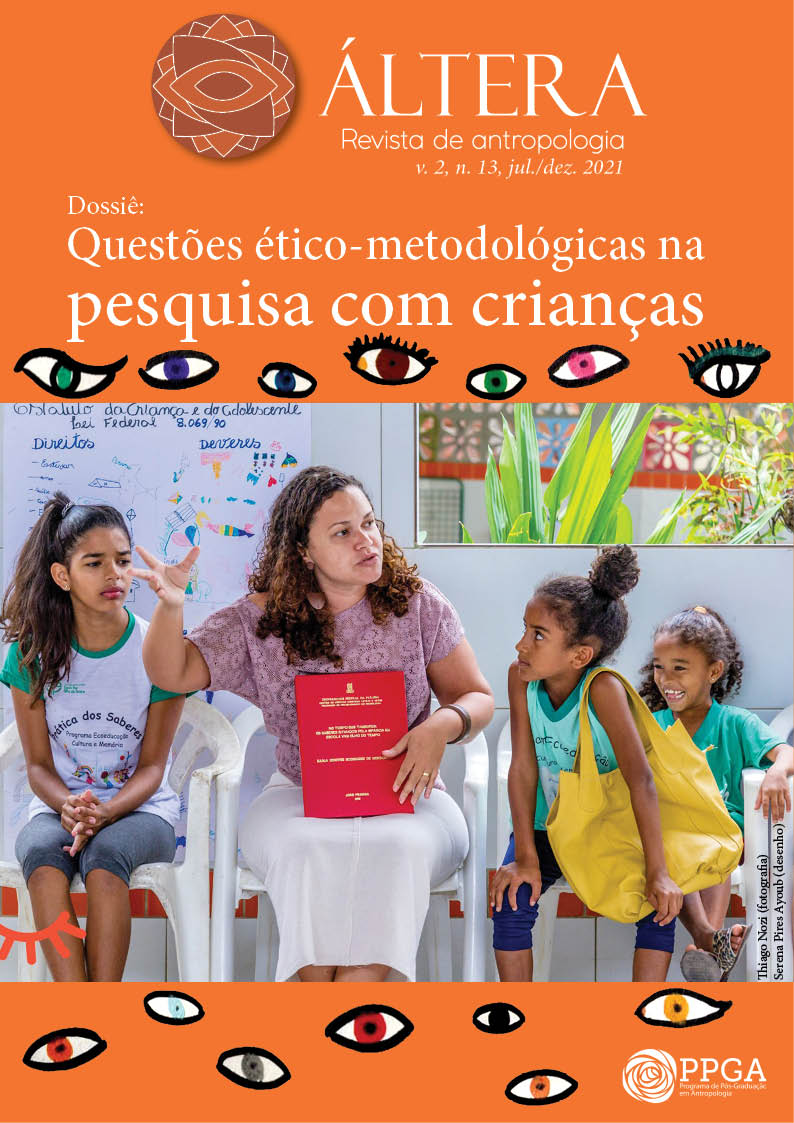IN CHILDREN'S CORTEJO: the methodological balance guided and learned in / with practice
o balanço metodológico guiado e aprendido na/com a prática
DOI:
https://doi.org/10.22478/ufpb.2447-9837.2021.n13.59487Abstract
This work reflects the methodological path guided and (de) built with / by the children in the research process engaged in the Escola Viva Olho do Tempo, in the rural area of the city of João Pessoa-PB. The research carried out in the master's degree in sociology (2018), aimed to reflect the children's learning processes in practice with drumming (percussion) in the group Tambores do Tempo, conducted by an educator. In this text, I share the procession born from the drumming movements that children produced with their instruments and in other experiences, guided the methodology of this research based on a vulnerable participant observation and linked to the movements of their invitations, expectations and strangeness. In this compass, I discuss that with children and in the ways of getting to know and understand their performance narratives, an inversion of power can be intoned in how research is planned and directed, investing in the possibilities of a collective, harmonious, democratic and ethic.
Downloads
Downloads
Published
Issue
Section
License
- Autores mantém os direitos autorais e concedem à revista o direito de primeira publicação, com o trabalho simultaneamente licenciado sob a Licença Creative Commons Attribution que permite o compartilhamento do trabalho com reconhecimento da autoria e publicação inicial nesta revista.
- Autores têm autorização para assumir contratos adicionais separadamente, para distribuição não-exclusiva da versão do trabalho publicada nesta revista (ex.: publicar em repositório institucional ou como capítulo de livro), com reconhecimento de autoria e publicação inicial nesta revista.
- Autores têm permissão e são estimulados a publicar e distribuir seu trabalho online (ex.: em repositórios institucionais ou na sua página pessoal) a qualquer ponto antes ou durante o processo editorial, já que isso pode gerar alterações produtivas, bem como aumentar o impacto e a citação do trabalho publicado (Veja O Efeito do Acesso Livre).



